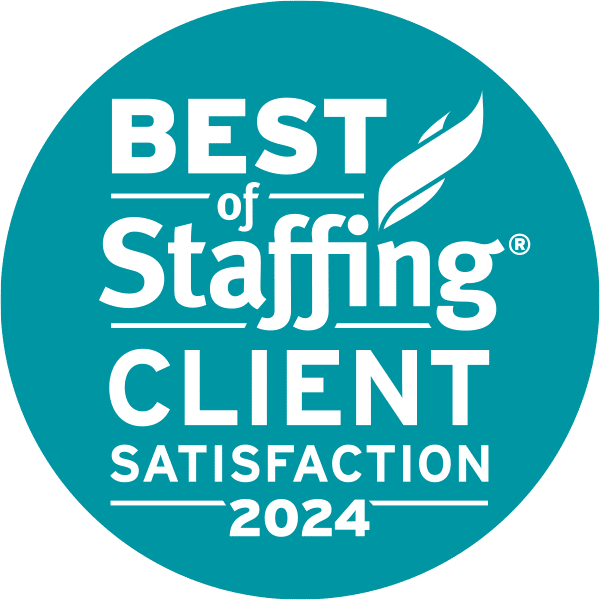Staffing Resource Center
We take great pride in providing solutions to all your staffing challenges. Our free Staffing Resource Center is just one more way that we help. Find articles and advice on topics such as controlling costs with strategic staffing, increasing efficiency, and driving team productivity.

It's a tough job market for employers. An economy pushing past full employment means that top performers can write their own tickets. If high-performing candidates aren't signing up to work with your organization, the problem may not be your culture or benefits package. It may be the best candidates don't know what you offer. To make their case to high performers, companies need to sell their opportunities, mission, and passion -- and the interview process is the perfect time to do just that. Selling during the interview allows you to present your organization's strengths and weaknesses in a way that doesn't feel like a sales pitch. Instead, presenting your company in its best light takes on the tone of a conversation between colleagues who are both seeking to make the best possible match. In order to make the best pitch possible to your star candidate or candidates, take the following steps: Before interviews begin, take an honest look at your company and the market in which it operates. How do you compare to the competition, both in terms of strengths and weaknesses? Evaluate points like: By understanding your organization's strengths and spotting its weaknesses, hiring managers position themselves to have a comprehensive conversation that puts the company in its best light for the consideration of top interview candidates. Job candidates are constantly reminded to tailor their applications and interview responses to each company with which they interview. The same advice works for interviewers. Before the interview, learn what you can about each candidate: Not only their background, but their individual needs and motivations as well. What matters to this candidate? How does your organization fit into their vision for their own career? Ask these questions in the interview as well. During the interview, tailor your discussion of the company's culture, benefits and other features to the candidate's stated mission, vision and goals. Asking about these in the interview provides a secondary benefit as well: top candidates are typically well-organized and know where they're headed, while those who give a scattered answer may lack vision or ambition. It's tough to sell anything when you don't know your audience. Talk to recent hires and to top candidates who bowed out of the hiring process. Key questions to ask include: In addition, ask whether specific topics like company culture, benefits, job duties or an office tour were addressed in the interview. During the interview, maintain a balanced give-and-take. You want the candidate to understand why the company is a great place to work, but you also want to gather enough information to be certain that this candidate is right for your team. Bring your passion into play. If the interviewer isn't passionate about working for the company, why should any candidate be passionate? Savvy candidates often take the initiative to gauge interviewer passion by asking their interviewer, "Why do you love working here?" By thinking about that question in advance, interviewers position themselves to offer better information to candidates. Finally, don't hesitate to ask for help. A new perspective on your organization can illuminate hidden gems you didn't realize your candidate sought. For instance, a staffing partner can help you see your company in the context of your local industry and market, as well as from the candidate's perspective. Interviewing = Selling
Why Sell During the Interview?
Know What You're Selling
To Give the People What They Want, Find Out Who They Are...
...And Find Out What They Want
Put It All Together


